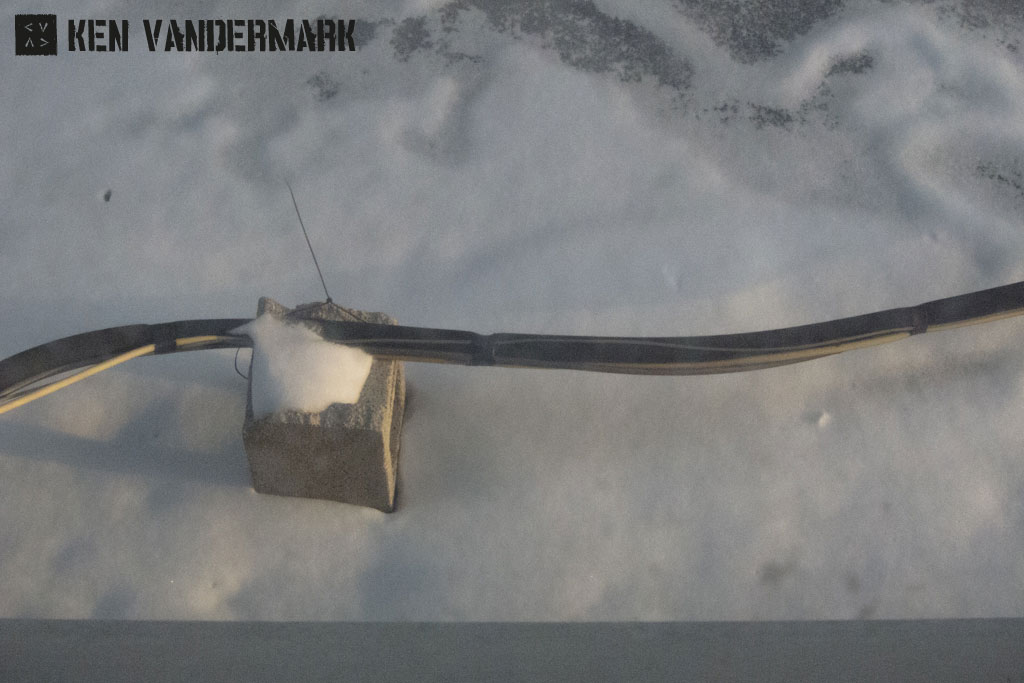

“Varése’s declaration that ‘the links in the chain of tradition are formed by men who have all been revolutionists!’ should serve as a reminder that Varése was talking about forging continuity, not breaking it. When he spoke of freedom for music, he did not mean irresponsible or unlimited freedom, freedom to do absolutely anything. He meant deliverance from outmoded practices statically and thoughtlessly perpetuated, from ‘bad habits’ (‘erroneously called tradition’), and from restrictions on the use of sound materials that modern technology had made accessible.”
– Jonathan Bernard
from “Varése: Astronomer in Sound,” (Kahn & Averill: 2003), by Malcolm MacDonald, pg. xvii-xviii.
On Friday, November 3rd, Malachi Ritscher killed himself. The loss to the international improvised music community is huge, and the loss for the Chicago scene is painful. It isn’t possible for me to write about his death in any clear way. Those who are interested in knowing more should visit Malachi’s website (savagesound.com), or read the article posted on Pitchfork (pitchforkmedia.com), which is the most objective presentation of the events surrounding his suicide. In a version of his will, Malachi put Bruno Johnson in charge of everything related to his musical interests. During the week after his death I helped Bruno salvage thousands of Malachis’s recordings from his home, primarily with the assistance of Nate McBride and Ellen Major. His family members were completely supportive of our involvement and wanted these documents to be dealt with as Malachi had indicated. All of the recordings are currently in storage and will be archived by Chicago’s Experimental Sound Studio in the future so that they can be used as a historical resource. There are plans to release a variety of selections from this material once the archiving is completed. On Sunday, November 12th, Dave Rempis organized a memorial at the Elastic space; the range and number of people in attendance is a partial testament to the impact Malachi Ritscher has had on all of the people that knew him.
•A Return To Chicago
After the many weeks in Europe, a chance to work at home again was about the only thing that helped me deal with the heavy blow Malachi’s suicide. Rehearsals of new Vandermark 5 material were made in preparation for the “A Discontinuous Line” cd release concert which took place at the Hideout on Wednesday, November 8th. Peter Brötzmann also appeared on the bill in a fantastic trio with Kent Kessler and Fred Lonberg-Holm. The new compositions, which will be recorded in Chicago during December after our European tour, include: Desireless, Any Given Number, Friction, New Acrylic, The Other Way Of Stopping, Further From The Truth, Signposts, and a reworking of the piece Compass Shatters Magnet, originally put together for the Jon Vanderlander Trio but restructured in an new version for this quintet. The concert was the first chance for many of the people in town who knew Malachi to see each other after hearing the news of his death on Monday the 6th; the music and the atmosphere was affected by this- a sad and complicated set of feelings filled the air- but (for me anyway) music once again proved to be a positive way to cope with difficult times.
The next night I had the chance to play with Raymond Strid, for the first occasion in years, and with Ingebrigt Haker Flaten, in a trio performance at Elastic that also included a solo set by Peter Brötzmann and a quartet combining the four of us. Peter continues to be one of the great solo improvisers, of this or any era. He just walks on stage and moves through whatever he finds, and everytime I’ve heard him in this context something extraordinary happens. The music of the trio was very surprising. At times it felt directly connected to the free jazz period but then things would cut into an entirely different direction, possibly more connected the sonic and rhythmic territory Gush would explore. This led to the quartet which became a fairly ferocious set starting in it’s first moments- there’s a reason two horns and a rhythm section has such a long history, it can set up the right circumstances for a huge, driving sound when called for. In this case, it was.
© 2024 Ken Vandermark – musician & composer | Disclaimer